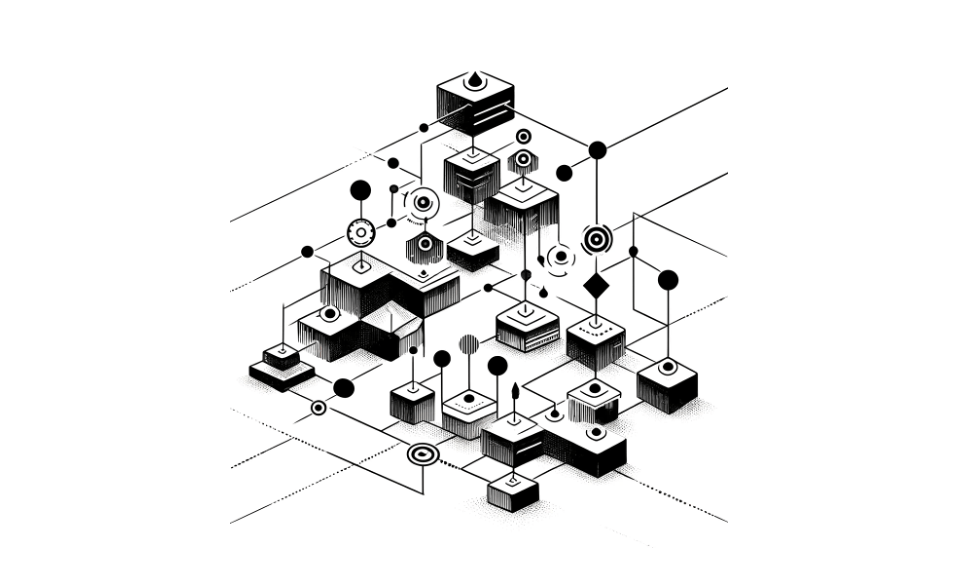Rauser on the Web
Follow My Blog
Posts
Flow, Flow, and Flow
What does it mean when we say “Flow”? In the study of organizational dynamics and productivity, the concept has evolved significantly over time. We can see three distinct yet interconnected types of Flow that have shaped our understanding of creativity, efficiency and productivity in various contexts. Let’s review them (using some names I made up)…
Agile, DevOps, AI, and the Future of Work
In many ways, the breakthroughs that have shaped the last few decades of progress in software delivery have become normal. We are no longer facing an intellectual gap in what “good” looks like on a software delivery team. DevOps has a Handbook, SRE has a Workbook, and Agile is even taught by PMI. We have…
Enterprise GenAI Delivery Patterns
Generative AI (GenAI) promises transformative potential for enterprises, yet the path from idea to implementation is complex. How can we harness this game-changing technology in the ecosystem of a large organization? We explore this problem in a new paper I co-authored and published in the Enterprise Technology Leadership Journal Spring 2024 edition.’ In this paper,…
Wiring for Flow: Harnessing Digital Networking Principles in Organizational Design
As a long-time practitioner in the field of improving ways of working across organizations, I often find myself drawing parallels between the complex systems we build in technology organizations with other domains. One area of deep interest for me is understanding the elaborate networks of people and processes in our businesses. This led me to…
Enabling Enterprise Innovation
How can R&D leaders working on incubation projects in large enterprises increase their odds of successfully transitioning into a major revenue stream? This article lays out the four enablers of transformation: Re-Use, Integration, Standardization and Unification. Incubating Innovation: The Theory You are likely already familiar with the Pareto Principle, also known as the 80/20 rule,…
Exploring the Frontier of Generative AI at Cisco
In 1893, Frederick Jackson Turner penned his famous Frontier Thesis to explain the culture that grew from the unique circumstances at the birth of the American nation. It was the great Western frontier, he said, that gave rise to a particular character, driven by the struggle and opportunity that lies in exploring the unknown. The…
LLM Archetypes: Product Patterns for Generative AI
This is a summary of my talk at DevOps Enterprise Summit 2023. To watch the full presentation, please visit the IT Revolution Video Library here: https://videos.itrevolution.com/watch/873538323 The advent of widely available Large Language Models (LLMs) has created a tremendous amount of excitement, and a decent amount of chaos. Let’s face it: LLMs are a solution looking…
Attacking AI Underneath the Prompt: LLMOps and Security
The current discussion about security AI is all about the prompt, a natural focal point: it’s the interface, generally available to the public and evoking the world’s imagination. We can already see the weaknesses: the ability to generate malicious content, the problems of data privacy, the threat of injection/exploitation, and general adversarial dialogue. But this…
How do Small Teams have a Big Impact in Large Companies?
Sometimes it feels like we are swimming in a giant sea of products, people and teams. Other times we forget that there are oceans of activity going on all around us. Developing software in a large company comes with a unique set of challenges. For a small engineering team, having an org-scale impact can be…
Grateful Leadership
Practicing values in the workplace is key to a healthy culture, but we tend to focus on those relating to communication, planning or practices. I like to also reflect on how our personal values translate into the workplace. Gratitude means being thankful by showing appreciation. When we practice gratitude, we channel our thanks into action.…
The Overview Effect (in Software)
The Overview Effect is a cognitive shift that is reported by astronauts when they see the earth from outer space for the first time. It is a change brought on by experiencing the world differently. Strongly held beliefs unfold. A new mental state is acquired from seeing the whole, after a life spent living in…
Diagonal Thinking
Are you counting what’s already there? or are you looking for the uncountable?
Information Relativity
Information relativity is a concept that has interesting implications on how we organize our teams and processes
Software Systems need ‘Skin in the Game’
In software, where our work consists entirely of systems building, we have continuously missed the crucial point: systems need skin in the game
Software Development and the Psychology of Money
I picked up The Psychology of Money because it’s light, had pretty good reviews and looked like a quick read. All of these promises came true, but I didn’t expect to apply the lessons to software! The book mainly revolves around two things that are hard to integrate into our every day thinking – 1)…
Pointing and Calling
A small leadership lesson on transparency
Get more out of your checklists: liminal states in software delivery
Use liminal thinking to discover what you have unconsciously learned to unsee
Notes on a Learning Organization
Building software products means coping with complexity. Our products are highly interconnected systems of systems. Dynamics are difficult to model; outcomes can be difficult to predict. Ivory towers crumble on this unstable ground. It is not sufficient to have one person deciding for the whole group, everyone following the direction of a “grand strategist”. Decision-making…
Are You Telling the Story of Your Software?
Stories connect the analytic with the synthetic: Analytic thinking deconstructs the problem, creating knowledge; Synthetic thinking puts the problem back together again, creating understanding.
Don’t Mix the Paint! Primitives and Composites in the World of Software
This Article was Originally Published in InfoQ on August 16th What color do you think of when you hear the word “red”? Ask 100 people, they will give you 100 different answers. Even with an anchor to help—a can of Coke, perhaps—there will be differences. So begins The Interaction of Color by Josef Albers, where…
What about Formal Verification?
Do formal proofs have a place in software? Not likely – they do not fit into our systems of software engineering.
Collaboration Calculus
Two of my favourite books show us the yin and yang of success – the individual and the team. Dan Pink’s Drive describes three key areas of motivation and personal growth: Autonomy: The desire to be self-directed Mastery: The urge to get better skills Purpose: The need to work with meaning Meanwhile, in David Marquet’s Turn the Ship…
The Seven Forms of “Not Waste”
Lean makes a big deal about looking for waste, but does that make sense? Let’s talk about things that add value
Synthetic Management
Synthetic Management is the use of empirical and experience-based management practices to support synthetic work
What is does it mean to be “Synthetic”?
Interpreting what it means to be Synthetic
Software is Synthetic
Originally published at InfoQ
























